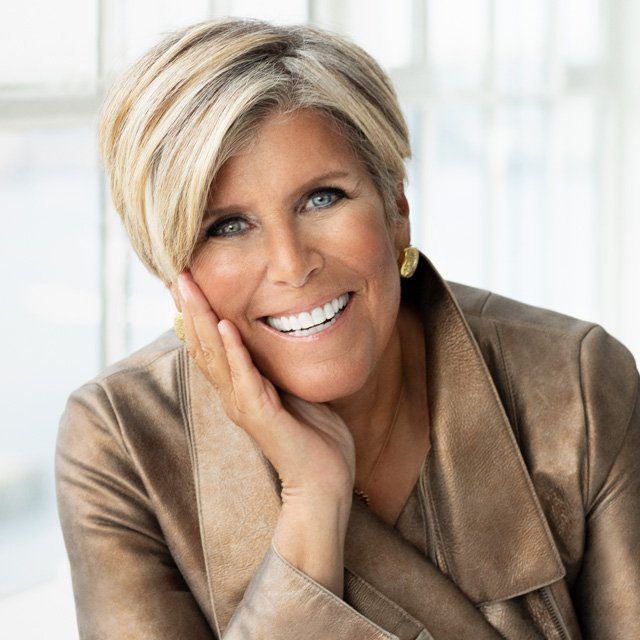How Suze Orman Is Investing Now

Suze Orman, personal finance superstar, forecasts a probable U.S. recession “sometime in 2023” because “I’m not liking what I’m seeing,” she tells ThinkAdvisor in an interview.
The bestselling author and former Prudential and Merrill Lynch financial advisor cites a long list of what she’s not liking, including food shortages, baby formula shortages, chip shortages, the Ukraine-Russia war, high inflation and, as she puts it: China, “who doesn’t really love us anymore … and is now friendly with Russia.”
Helming Suze Orman Worldwide Enterprises, the self-dubbed “America’s Matriarch of Money,” 71, is certainly well-prepared financially for a recession. But a life-changing experience two years ago has made her rethink her investment portfolio.
In July 2020, she underwent surgery to remove a benign tumor from her spine. Today, she is still coping with neurological issues with an arm.
This health crisis has been largely responsible for Orman starting to shift her focus from investing in individual growth and some speculative stocks to preferreds and dividend-paying stocks, she reveals in the interview. She owns at least 150 individual equities.
“More than growth, I really care now about generating income,” she says, then details some of her moves.
She also has I bonds, which protect against inflation. She has invested in them for more than 20 years and recommends them to investors in today’s volatile market.
Major surgery didn’t stop Orman from promptly returning to work and even embarking on a brand-new venture: co-founding a fintech startup.
“For years, I’ve been saying that the goal of money is to be secure,” she says in the interview.
Her new endeavor fits perfectly with that philosophy: SecureSave, with software created by a veteran financial startup executive and an experienced tech entrepreneur, who asked her to join them, is an employer-sponsored platform allowing employees to open an emergency savings account at no cost.
Whatever sum the worker chooses is automatically deducted from their paycheck, with the employer matching a portion of it. She discusses the program in the interview.
SecureSave is “funded for a long time,” Orman notes.
To date, she is a proven media powerhouse: writing bestselling books — most recently “The Ultimate Retirement Guide for 50+”; starring in “The Suze Orman Show” on CNBC, which ran for 13 seasons; and hosting the long-running podcast “Women & Money,” aimed at women age 50 and older.
ThinkAdvisor interviewed Orman by phone on Aug. 17. She was speaking from the Bahamas, where she and Kathy “KT” Travis, her wife and managing director of her firm, live on a private island.
“Everybody should have at least eight months to a year of expenses set aside” in case of emergency, Orman stresses.
“If you’re seriously rich and your expenses are $200,000 a month, you need $2.5 million set aside somewhere that’s your emergency fund,” she says.
Here are highlights of our conversation:
THINKADVISOR: Some experts say the U.S. is in a recession; others say one is coming soon. What do you think?
SUZE ORMAN: We’ll probably have a recession sometime in 2023. I’m not liking what I’m seeing: I don’t like the food shortages. There’s now starting to be a tomato shortage. I don’t like the baby formula shortage.
I don’t like the shortage of chips for producing cars. I don’t like that Ukraine and Russia are at war, especially because Ukraine holds some major supplies [for export].
Any other reasons?
We have high food, rent and car inflation. It’s still high on oil even though it’s come down.
And we have China, who doesn’t really love us anymore. What’s going to happen with China, who is now friendly with Russia? How do they start to affect what’s happening here, which they absolutely could?
But U.S. consumer spending generally remains strong. What do you make of that?
Savings rates are down; credit card debt is starting to go up. People are going into debt.
But they wouldn’t have to if they had an emergency savings account. I’ve been on an emergency savings bonanza forever and a day.
Should people have such an account even when there’s no threat of imminent recession?
You always need to have emergency savings because you never know what will happen.
After I had my operation two years ago, if I weren’t who I am [financially], there’s no way I could have worked for the past two years.
Everybody, recession or not, needs to think what they would do if they were in a car accident or get sick or if inflation goes up so high that their paycheck doesn’t cover their expenses.
It’s mandatory to have an emergency savings account.
What if financial advisors with high-net-worth clients argue that people at that economic level don’t need an emergency savings account?
It doesn’t matter who you are and how much money you have. Everybody should have at least eight months to one year of expenses set aside.
If you’re seriously wealthy and everything is invested — you have a million in real estate, millions here, millions there — you want to know that you can pay for things without having to sell [investments].
If you’re seriously rich and your expenses are $200,000 a month, you need $2.5 million set aside somewhere that’s your emergency fund.
Speaking of “seriously rich,” do you still have 100-150 individual stocks, as you told me in a February 2020 interview?
I have at least that many now. But I’ve decided that I’m absolutely going to start to consolidate and shift from growth and certain types of speculative stocks that I’ve had into preferred stocks and dividend-paying stocks.
Why?
Because of where I am [age-wise], and my health hasn’t been great. And more than growth, I really care now about generating income. I don’t like to ever go into my principal.
I’m switching from certain things that I’ve made money on and that are still up, like growth stocks that pay dividends, such as Devon Energy and Pioneer Energy, which are paying double-digit dividends right now and have been up extraordinarily.
Today I bought a preferred at T Bank that’s paying me 6.5% interest.
Do you still have municipal bonds? You told me that most of your money was in those.
Yes, I do. But as time goes on, some of the bonds were called, and so I [now] have all this cash.
Munis will come into play again shortly, I think.
In the meantime, I’m taking that money and putting it into preferreds and/or Treasury notes and just waiting.


